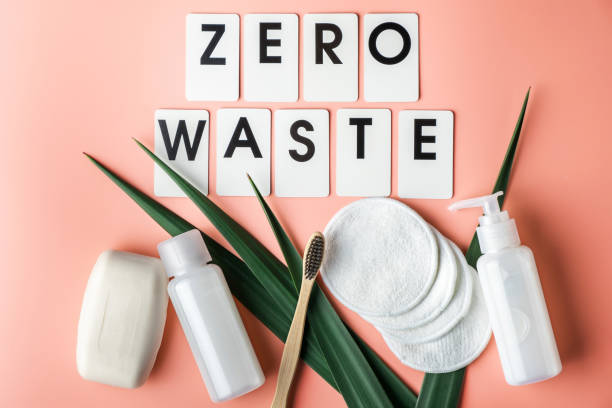The bottle in the concept is colorless and constructed entirely of post-consumer recycled material.
To meet the issue of developing recyclable consumer packaging based on 100 percent recycled plastic packaging for cosmetics applications, Clariant, Siegwerk, Borealis, and Beiersdorf have joined forces.
The “Design4Circularity” program offers ideas and insights for various design aspects to inspire others to adhere to the design for circularity principles.
By incorporating full life cycle thinking into each stage of production, the cross-industry partnership aims to create circular packaging. Circular packaging uses less fresh, new plastic and has a smaller environmental impact.
According to Clariant’s Richard Haldimann, chief technology and sustainability officer, “This partnership was made possible because all players are committed to the circular economy, have companywide programs, and have a comprehensive grasp of the systems involved.” In order to achieve circularity, product packaging and package raw materials must completely change, taking sortability, recycling, and packaging end-of-life into account.
According to Stefan Haep, technology head brand owner collaboration at Siegwerk, “Our initiative is a frontrunner in uniquely assessing circularity in every design parameter, from additives to bottle material to inks, mapping industry competencies, potential gaps, and feasibility proof points to open up viable, ultimately circular solutions.”
It was the goal to develop packaging that produces a cleaner input stream and enters the feedback loop in high-value applications. The partners argue that it should also support the premium graphics and distinctive designs that customers identify with cosmetics packaging and brands.
The concept is around a colorless polyolefin bottle created with 100% post-consumer recycled material (PCR) that is fully sleeved in a printed deinkable shrink sleeve to meet all of these requirements. All materials have the potential to be recovered and utilized again for the same high-value application, making them theoretically 100% recyclable.

According to Stefan Rüster, a packaging expert from Beiersdorf, “We follow an ambitious sustainability agenda, including the aim of totally circular resources.” For upcoming cosmetics applications, the packaging solution from Design4Circularity is revolutionary. We were able to successfully integrate the stringent design criteria of a cosmetic container with complete circularity thanks to the diligence and creativity of all collaboration partners. We hope that our industry peers will be inspired to follow by this success, for which we are really proud.
According to Peter Voortmans, worldwide commercial director for consumer products at Borealis, “the transition to a circular economy is a collaborative effort.” “We can only create a future that is constantly attentive by working with those who share our values. In order to reimagine the necessities for sustainable living, we start with packaging design and the appropriate infrastructure for recycling and sorting.
The choice of sleeve and bottle materials, sortability and deinking of the sleeve material, recyclability, and PCR quality were among the crucial design aspects.
The packaging material must maintain its highest value throughout numerous life cycles in order to provide postuse packaging a second life. Offering high-quality PCR based on its own Borcycle M mechanical recycling technology, Vienna-based Borealis used its expertise in cutting-edge mechanical recycling technology to this situation.
Clariant, a company based in Muttenz, Switzerland, also contributed its experience in design-for-recycling additive solutions to safeguard PCR quality and prevent polymer chain disintegration at every stage of recycling. This resulted in a viable, high-value PCR that consistently met the stringent requirements of consumer packaging for personal care products. The circular solution also emphasizes the use of colorless bottles to improve the quality of the PCR after recycling.
Despite employing an uncolored bottle, the cooperation used a full-body shrink sleeve to differentiate the packaging and allow for individual brands’ distinctive graphics. Siegwerk, an ink company situated in Cologne, Germany, offered the ink systems that, in conjunction with Beiersdorf, a cosmetic sleeve maker, and a full-body, colorful, and appealing cosmetic sleeve, were able to create. Additionally, the new ink composition that was chosen was made to enable deinking of the sleeve during a recycling process, enhancing the packaging’s circularity. The bottle and shrink sleeve combo is meant to be removed at a facility for material recovery.
The full-body sleeved HDPE bottle’s sortability was demonstrated in sorting tests utilizing the existing recycling infrastructure, resulting in high recovery. The project team also tested full-body sleeved PET bottles, which are transparent polyethylene terephthalate, and got identical outcomes.
The circular economy’s ultimate goal of giving colorless bottles a second life in colorless applications while maintaining their best value, according to Clariant, requires further development in sorting technology. The partners note that technologies like artificial intelligence and digital watermarking could aid in achieving such sustainability targets.

